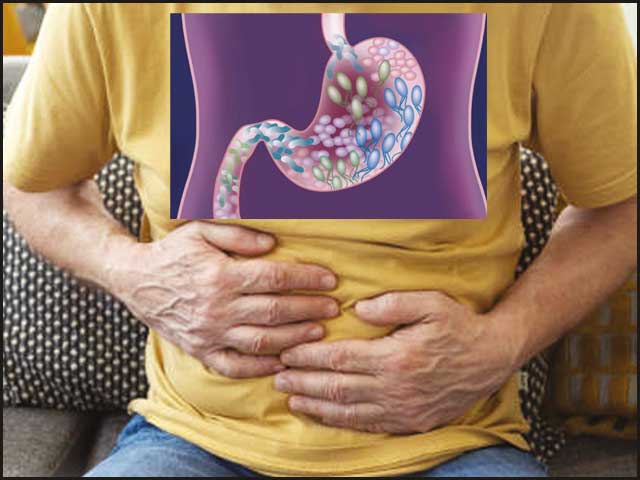The stomach is basically an extension of the oesophagus, the right side of the stomach has more mucous membrane and because its structure is a bit flat, food slips.
The left side of the stomach is bag-like, it is called the ‘Four Stomach’, the food stops in this area and the ‘digestive moisture’ falls on the food in this area. The mouth of the stomach is very close to the heart that sometimes a person feels pain in the mouth of the stomach and the patient begins to feel anxious that he has a heartache, and it is not wrong that the smell of the stomach really Sometimes the heart hurts.
95% of people suffering from heart disease have previously suffered from gastrointestinal disease. If these gusts hurt the brain through the nerve, it causes a migraine in the back of the head and sometimes a headache in the whole head. Remember that the mucus of the mucous membrane lining the stomach wall has a salty taste. So, if the stomach is emptied by vomiting, but sometimes there is a complaint of vomiting that only white salty water comes out, it means that there is irritation in the stomach membrane due to acidity.
Many people complain of back pain, so if there is pain in the middle of the back on the left side, it is possible that the food in the back of the stomach is putrefied (rotted). In the same way, if the stomach is tormenting the sleeping brain, then terrible dreams come, especially after eating heavy food, sleep without walking, then this happens, that is, nightmares come.
The stomach actually facilitates its function in being warm. The point is that on the lower side of the stomach, on the right side, there is the pancreas, which brings heat to the stomach, but on the left side of the stomach, there is the ‘spleen’, where the dead red cells are found. Above the heart and in front of the stomach, the ‘peritoneum’ keeps the stomach warm.
Structure of the stomach
The stomach consists of five levels:
1. First layer: The innermost layer is where the thick mucous membrane is.
2. Second level: It supports the first level.
3. Third level: It is made of Laham (meat), slightly thicker.
4. Fourth layer: It contains tissues to support the third layer.
5. Fifth level: This is the outermost level of smooth type.
The nervous system of the stomach is called the ‘Gastrointestinal Nervous System’. It extends from the esophagus to the bladder, supported by the parasympathetic nervous system. In stomach pain, the same parasympathetic nervous system should be sedated, along with stomach relaxants, otherwise the stomach ache will tighten again in six hours. Gastrointestinal patients are advised to avoid stimulants so as not to stimulate the nervous system, especially red pepper. Rice and other rheumatic foods stimulate the nervous system due to rheumatic stress.
How to keep the stomach healthy?
1. Have a very light breakfast and the best time for breakfast is before 10 o’clock. The best time for lunch is around 2 pm, take dinner at sunset and take it very light.
2. Do light exercise after breakfast like hanging or skipping to exercise the joints, rest for a while after lunch for about three hours, walk after dinner (40 steps is a must).
3. Take food in such a way that some part of it is water and some part is empty for air. Chew so much that the food melts in the mouth, because the digestive system begins with the tongue and the secretion of gastric secretions begins with smell.
4. Sleep enough to be refreshed, too much sleep causes gas in the stomach and less sleep causes dryness in the stomach. Try to do strenuous exercise on an empty stomach or an hour after a meal, otherwise the food stays in the stomach due to the closure of the lower part of the stomach, causing indigestion and stomach pain.
5. Do not sleep on the left side or on the back for too long, otherwise gas is produced. Better to keep changing the crotch. It should be remembered that sleeping in a long crotch causes food to slip, sleeping in the left crotch for a long time accumulates digestive moisture in the stomach, sleeping in an inverted crotch compresses the stomach, so the food can come up to the esophagus, which causes acidosis. ‘Acid reflux’ occurs.
Protect the stomach from what?
1. Take care not to injure the stomach.
2. Avoid stress, as stress hormones weaken the ‘restrictors’ in the stomach that prevent food from regurgitating.
3. Chili spices, if used in moderation, as often children put on chips, can tear the inner mucous membrane of the stomach, avoid them.
4. If there is heartburn, then use milk, sweet dhi, if appetite is low, then excess acidity should be considered. If the stomach feels heavy even after four hours of eating, it is an indication of indigestion.
5. Consume plain ghee, bakery items, liberal use of red chillies, rest, calmness.
(function(d, s, id){
var js, fjs = d.getElementsByTagName(s)[0];
if (d.getElementById(id)) {return;}
js = d.createElement(s); js.id = id;
js.src = “//connect.facebook.net/en_US/sdk.js#xfbml=1&version=v2.3&appId=770767426360150”;
fjs.parentNode.insertBefore(js, fjs);
}(document, ‘script’, ‘facebook-jssdk’));
(function(d, s, id) {
var js, fjs = d.getElementsByTagName(s)[0];
if (d.getElementById(id)) return;
js = d.createElement(s); js.id = id;
js.src = “//connect.facebook.net/en_GB/sdk.js#xfbml=1&version=v2.7”;
fjs.parentNode.insertBefore(js, fjs);
}(document, ‘script’, ‘facebook-jssdk’));



